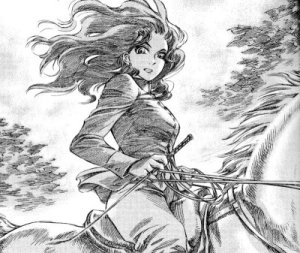Heart-warming mystery drama with unique touch of criticism on our modern society
Mystery to Iunakare has a common trope of an aloof and eccentric genius who is able to solve even the most unsolvable puzzles, very much like Sherlock Holmes or Hercule Poirot, the police having constantly to rely on their help. This brings along both advantages and disadvantages to the story. Kunou Totono's geniousness IS the character, with his quiet but observant nature, yet one could also wonder if the drama is meant to be a realistic police drama or just a mystery story with an unrealistic plot. When Kunou is able to solve the cases with the weirdest, most random clues, it takes away from the credibility of the story. Kunou appears to use scientific evidence and theories to help him make the deductions but the evidences and theories are at times far-fetched and rely on pop-science, and Kunou quickly jumps to conclusions and outcomes that remarkably always land correct.
Hence, the different mysteries and crimes weren't the favorite part of the drama for me. Instead, I loved the criticism it offerered to our modern society. There were many good discussions and remarks that Kunou points out from time to time almost as as a moral or lesson after the mysteries have been solved. From the social position of women to childrens' rights and to the gratitude and observance we should have for life, these arguments were stated with a direct and bold manner, something which I have never quite encountered in Japanese dramas. I really loved it. The arguments that Kunou bring up are straight from the original manga. The story also had certaind kind of understanding and humanity that only Japanese dramas can deliver. Mystery to Iunakare quickly became one of my top comfort dramas that made me relax and forget my own issues for awhile.
Furthermore, what would the drama be without Suda Masaki who amazingly brought Kunou to life with the warmness, quirkiness and soul level deepness that Kunou has in the original manga. Unlike Sherlock, Poirot and company, Kunou doesn't come off as arrogant or know-it-all. He welcomes life with open arms, observing it with a inquisitive mind and always stays humble and down-to-earth, making remarks and opinions that usually hit the nail on the head. He always stays respectful and accepting of others and even creates this special bond with the wrongdoers, trying to understand their motives without necessarily accecpting their actions. Kunou's wonder and celebration of life is beautiful and his patient and compassionate nature that allows him to to try and understand others is something that made me really fall in love with the characther. I hope, as the story progresses, we get to learn more about Kunou himself and his past. Points to the female lead who had an interesting character development!
The mysteries alone were not very interesting and a bit lacking at times. However, the story wraps up surprisingly at the end, tying together some loose ends. The production quality is not at par with many of the modern-day dramas which unfortunately takes away from the magic of the story. OST didn't really stick with me, and the well-known classical pieces being even distracting at times, however the song "カメレオン" by King Gnu was lovely.
Despite the weaknesses, the positives of the drama really shone through, and all in all, I give the drama 8.5 stars and it goes straight to my favorites! I'm looking forward to the movie! :)
Hence, the different mysteries and crimes weren't the favorite part of the drama for me. Instead, I loved the criticism it offerered to our modern society. There were many good discussions and remarks that Kunou points out from time to time almost as as a moral or lesson after the mysteries have been solved. From the social position of women to childrens' rights and to the gratitude and observance we should have for life, these arguments were stated with a direct and bold manner, something which I have never quite encountered in Japanese dramas. I really loved it. The arguments that Kunou bring up are straight from the original manga. The story also had certaind kind of understanding and humanity that only Japanese dramas can deliver. Mystery to Iunakare quickly became one of my top comfort dramas that made me relax and forget my own issues for awhile.
Furthermore, what would the drama be without Suda Masaki who amazingly brought Kunou to life with the warmness, quirkiness and soul level deepness that Kunou has in the original manga. Unlike Sherlock, Poirot and company, Kunou doesn't come off as arrogant or know-it-all. He welcomes life with open arms, observing it with a inquisitive mind and always stays humble and down-to-earth, making remarks and opinions that usually hit the nail on the head. He always stays respectful and accepting of others and even creates this special bond with the wrongdoers, trying to understand their motives without necessarily accecpting their actions. Kunou's wonder and celebration of life is beautiful and his patient and compassionate nature that allows him to to try and understand others is something that made me really fall in love with the characther. I hope, as the story progresses, we get to learn more about Kunou himself and his past. Points to the female lead who had an interesting character development!
The mysteries alone were not very interesting and a bit lacking at times. However, the story wraps up surprisingly at the end, tying together some loose ends. The production quality is not at par with many of the modern-day dramas which unfortunately takes away from the magic of the story. OST didn't really stick with me, and the well-known classical pieces being even distracting at times, however the song "カメレオン" by King Gnu was lovely.
Despite the weaknesses, the positives of the drama really shone through, and all in all, I give the drama 8.5 stars and it goes straight to my favorites! I'm looking forward to the movie! :)
Esta resenha foi útil para você?

























